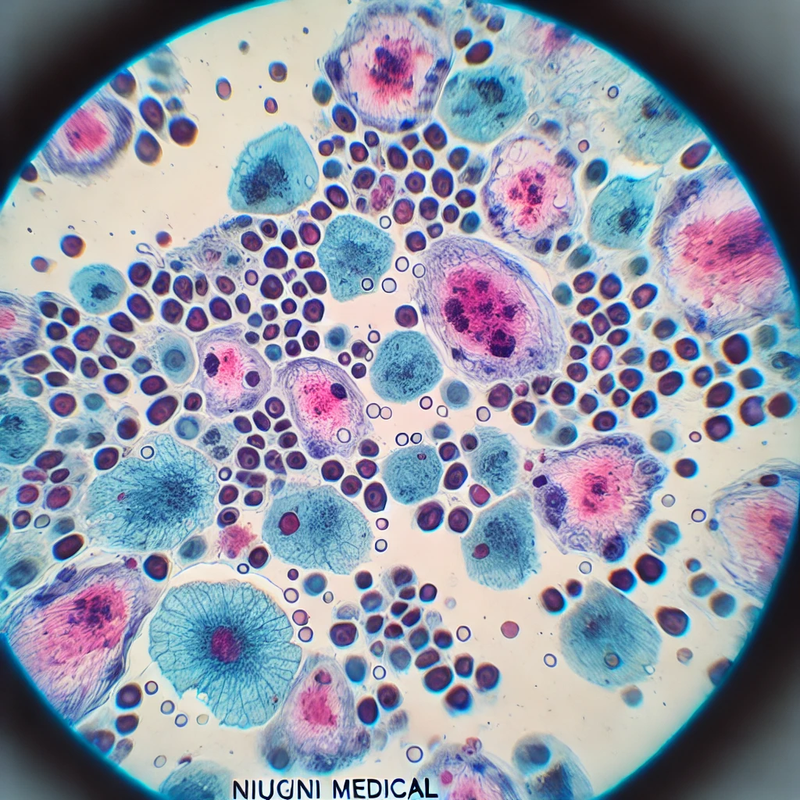Pap Smear-Cervix Cancer Screen

Question 1. What is Pap Smear or Pap Test ?
The pap smear test, also called pap test (papanicolaou test) is a simple test that scrapes cells off the surface of your cervix (lower part of womb) for examination in a laboratory. This test is widely used to screen and diagnose cervix cancer or early cancer in Papua New Guinea.
Questions 2. Why have it?
It can detect early warning sign of cancer of the cervix (cancer of neck of worm). This is one of the most curable forms of cancer if detected early; hardly any women would die from it if all had regular smears as recommended by medical profession. Unfortunately, in Papua New Guinea many women present to hospital in very late stages and die from it. The early changes in the cells cause no symptoms, and so women in early stages of cancer feel quite healthy.
Question 3. Who should have it?
Any women in Papua New Guinea over 15 years of age who have had sex should have a smear test, and it should be performed every 2-3 years up to the age of 65. Even women who have stopped having periods or stopped having sex should have regular pap smear test to detect early signs of cervix cancer. The reason is that this cancer begins after infection by sexually transmitted virus called Human Papilloma virus (HPV) and may take 10-20 years for the cancer to develop.
Current recommendations (2012) by the American College of Obstetrics & Gynaecology are:
- Women aged 30 to 65 with normal Pap and HPV tests need screening only every five years. If only a Pap test is available, it is needed every three years.
- Women aged 21 to 29 should be screened every three years instead of every two years.
- Women under 21 do not need screening because invasive cervical cancer is rare in this age group.
- Women 65 and older don't need screening if they have no history of cervical cancer and have had three consecutive normal Pap tests or two consecutive Pap and HPV tests over a 10-year period with the latest test done within the past five years.
- Women of any age who have had a total hysterectomy, which includes removal of the cervix, and have no history of cervical cancer do not need regular screening.
- HPV-vaccinated women should follow the same screening guidelines as unvaccinated women.
Question 4. Who is more likely to get cervix cancer?
You are likely to increase your change of cervix cancer if you:
- Started having sex at an earlier age (<18 years)
- Have multiple sex partners
- Have history of other sexually transmitted diseases such as Gonorrhea and Chlamydiae infection
- HPV infection
- Had partner with HPV infection
Question 5. When is the ideal time to have smear done?
The best time to have smear is anytime after your periods have finished. It should not be done if you have been douching or using vaginal tablets in the previous 24 hours.
Question 6. How is the pap smear performed?
It is part of normal pelvic or vaginal examination. Doctor will explain the procedure to you as your cooperation is important.
1. You lie on your back or couch.
2. An instrument called speculum is slid gently into the vagina and then opened so that the doctor can see the cervix clearly, with the help of light.
3. Using a soft brush or thin spatula, a smear is then taken. It is really a small amount of mucous with cells that sit loosely on the surface and the small opening of the cervix. The smear is then placed on a glass slide, which is send away to be tested.
Question 7. Does the smear hurt or take long?
It is simple test that does not take long (only about 2-3 minutes) and should not hurt. If you are tense and do not relax your pelvis it may feel a little uncomfortable but will not cause pain. The more relaxed you are the better. Deep breathing and use of warm speculum will help you relax.
Question 8. Will I feel embarrassed?
It is quite normal to feel a little embarrassed. Compared to other countries, this can be a major problem in Papua New Guinea due to many factors including culture issues. Doctors, off-course, are used to doing them and perform many each day, so they understand. Nobody has ever died of embarrassment but many have died of cancer of cervix by not having a smear test.


